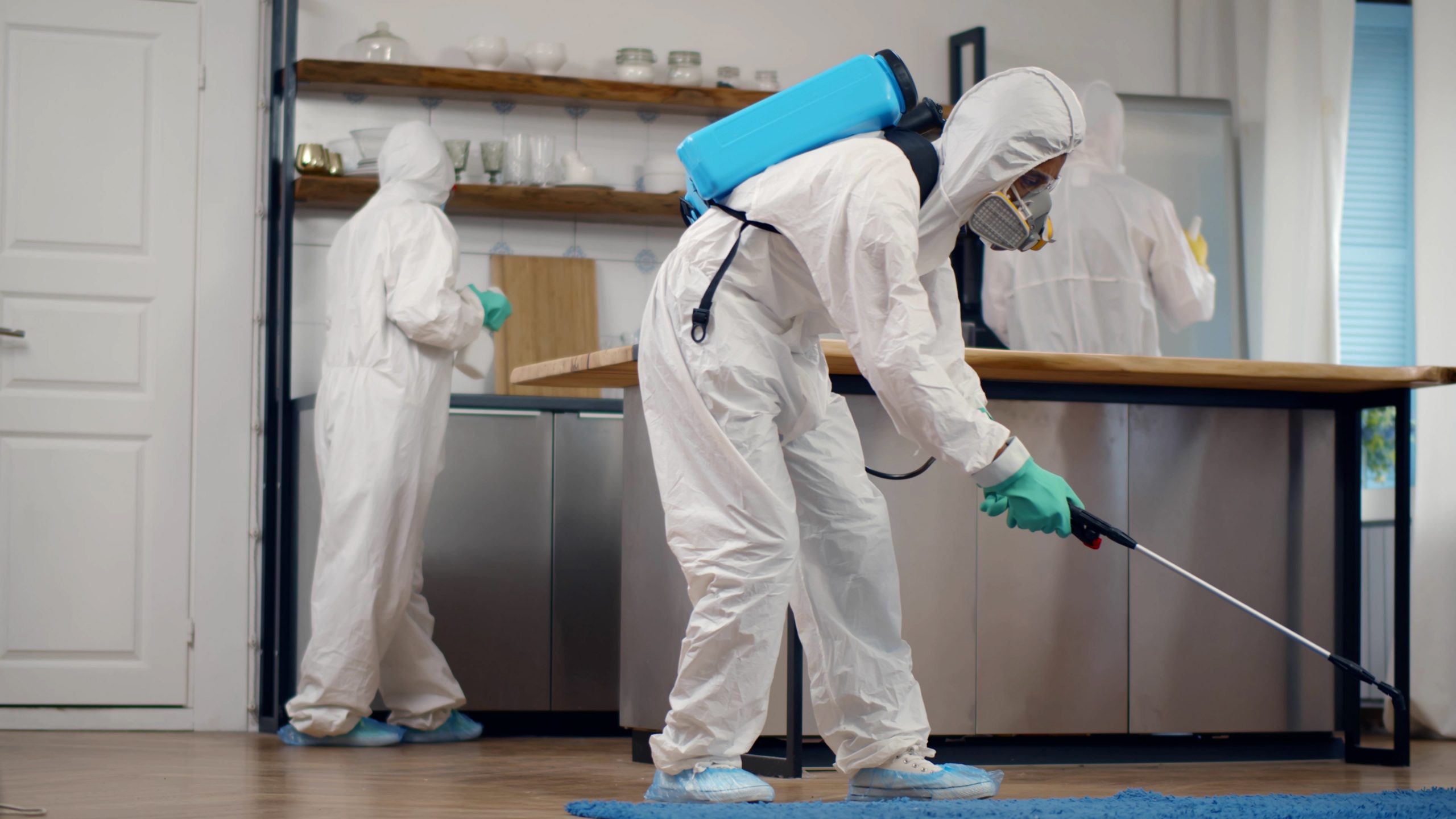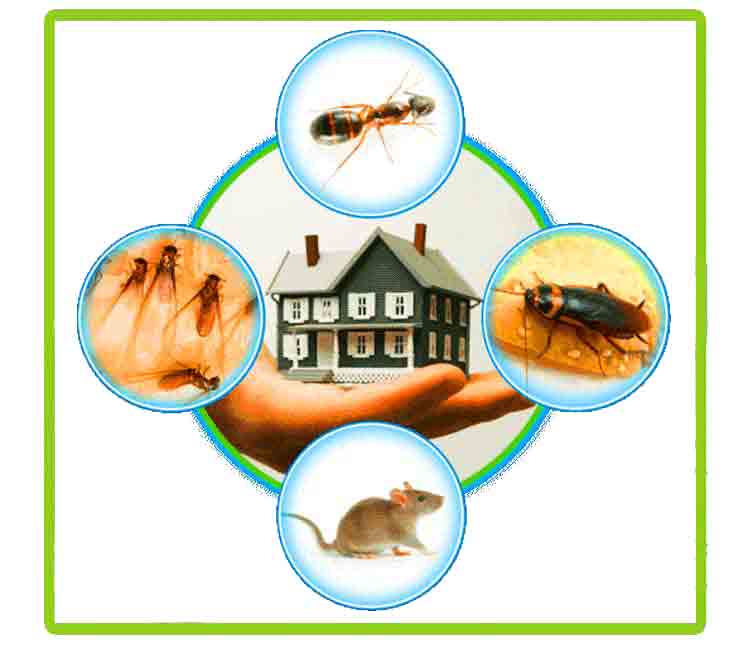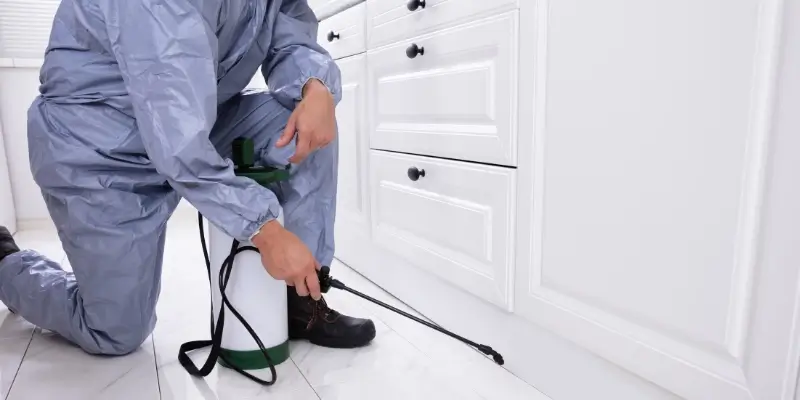Safe and Trustworthy Parasite Control for Lasting Security
Efficient pest monitoring calls for a diverse approach that balances eco-friendly stability with the requirement for reliable bug suppression. The nuances of these techniques might not be immediately clear, motivating a closer evaluation of the techniques that can lead to sustainable insect control outcomes.
Comprehending Insect Control Techniques
Pest control incorporates a variety of approaches focused on managing and removing undesirable bugs and rodents that can endanger both health and building. Comprehending these methods is vital for effective parasite monitoring.
The primary groups of bug control methods include mechanical, organic, and chemical methods. Mechanical approaches include physical obstacles and catches to stop pest entrance and capture undesirable species. Using screens on home windows or utilizing sticky traps can substantially decrease bug populaces without introducing harmful substances - exterminator coquitlam.

Chemical parasite control is frequently one of the most recognized technique, making use of chemicals to eliminate insects. These chemicals can be efficient but should be made use of with care to stay clear of adverse results on non-target types and the setting.
Advantages of Eco-Friendly Solutions
Exactly how can eco-friendly services transform parasite control techniques? The adoption of green pest control methods offers many advantages, considerably enhancing the effectiveness and safety and security of pest monitoring (exterminator coquitlam). These remedies utilize natural active ingredients, lowering the reliance on hazardous chemicals that can pose threats to human health and the environment. This shift not just safeguards families and family pets yet likewise minimizes the possibility for soil and water contamination.

One more benefit is the favorable impact on regional biodiversity. Environmentally friendly remedies are made to target particular insects while maintaining advantageous pests and wild animals, advertising a balanced community. This approach aligns with the growing customer demand for sustainable practices, boosting the reputation of parasite control suppliers.
Integrated Parasite Administration Approaches
The execution of eco-friendly options naturally results in the fostering of Integrated Parasite Administration (IPM) methods, which additionally improve bug control efficiency. IPM is an all natural technique that combines numerous methods to take care of insect populaces while lessening ecological influence. This strategy emphasizes making use of organic, cultural, mechanical, and chemical controls, making certain a balanced and sustainable approach of pest administration.
One basic facet of IPM is the detailed evaluation of bug activity and ecological conditions. By monitoring insect populaces and recognizing their life cycles, specialists can apply targeted interventions that interrupt the bug's habitat or lifecycle, decreasing reliance on chemical pesticides. Additionally, cultural techniques such as crop rotation and habitat control can significantly reduce insect facility and reproduction.
An additional crucial part is making use of biological control representatives, such as useful pests or microorganisms, which can normally subdue bug populations. When chemical applications are essential, IPM prioritizes using low-risk pesticides and uses them uniquely, lessening exposure to non-target organisms and humans.
Integrating IPM techniques not only boosts bug control performance however additionally promotes a safer ecological community, lining up with the expanding demand for sustainable techniques in bug administration.
Safe Practices for Homeowners
Recognizing the importance of safe methods in insect control can empower home owners to effectively manage parasite concerns while guarding their wellness and the environment. Carrying out safe approaches and preventive steps is vital in lessening direct exposure to dangerous chemicals.
Home owners must initially analyze their environment for problems that attract parasites, such as standing mess, water, and food waste. Consistently cleansing and sealing access factors can prevent bugs from invading the home. Using all-natural deterrents, such as vital oils or diatomaceous earth, can provide effective options to chemical pesticides.
When chemical go to this site therapies are necessary, home owners ought to go with items that are especially labeled as risk-free for residential use. It is necessary to follow application standards carefully to stay clear of too much exposure. Utilizing targeted treatments in areas where insects are determined, rather than covering spraying, can substantially reduce chemical use.
Finally, maintaining open interaction with insect control experts outdoor termite control is important. House owners ought to ask about the security of products used and demand green options whenever feasible. By embracing these secure practices, property owners can develop a healthier living atmosphere while efficiently handling pest problems.

Tips for Long-Term Security
Establishing a bug management method that stresses lasting protection can considerably boost the performance of the secure techniques previously reviewed. To achieve this, house owners must carry out normal inspections of their residential property, focusing on concealed locations such as attic rooms, basements, and crawl areas. Early discovery of parasite activity is critical in stopping infestations from taking hold.
These techniques decrease attractants that attract bugs into the home. Sealing entry points, such as cracks around home windows and doors, can properly obstruct potential pest access.
Landscaping needs to additionally be thought about; keeping plants cut and preserving a range between vegetation and the home decreases hiding spots for parasites. Making use of all-natural deterrents, such as vital oils or diatomaceous earth, can better inhibit infestations without considering extreme chemicals.
Lastly, collaborating with an expert pest control solution for periodic analyses can give an additional layer of safety and security. These specialists can supply tailored referrals and progressed therapies, making sure that your home remains secured against parasites in the long-term.
Conclusion
Finally, trustworthy and risk-free parasite control requires a diverse method that stresses green methods and integrated pest administration. By implementing natural deterrents, performing regular assessments, and preserving proper sanitation, homeowner can dramatically lower pest populations while shielding useful pests and the environment. Partnership with professional insect control solutions boosts the performance of these methods, making certain tailored services that provide long lasting security and tranquility of mind against future invasions.
Efficient parasite monitoring calls for a complex strategy that balances eco-friendly honesty with the demand for effective parasite reductions. The fostering of eco-friendly insect control approaches supplies countless advantages, substantially improving the efficiency and safety of parasite monitoring.The application of environmentally friendly solutions normally leads to the fostering of Integrated Bug Administration (IPM) approaches, which better improve pest Home Page control effectiveness. exterminator coquitlam. By keeping an eye on bug populations and recognizing their life cycles, professionals can carry out targeted interventions that disrupt the insect's habitat or lifecycle, lowering dependence on chemical pesticides.In verdict, secure and trustworthy insect control calls for a diverse technique that emphasizes green approaches and integrated pest management